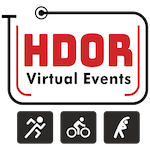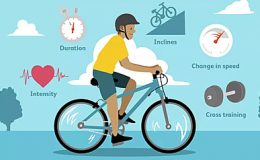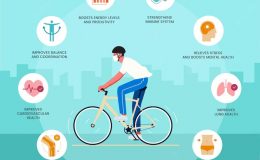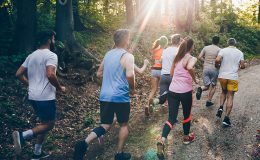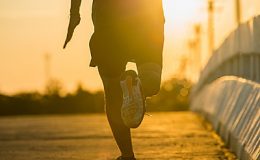Cycling for Beginners: How to Get Started and Build Endurance

Cycling is a fantastic activity that provides a fun and adventurous experience and offers numerous health benefits. Whether you’re looking to improve your fitness level, explore new terrains, or enjoy the outdoors, cycling is the perfect choice. If you’re new to cycling and want to get started on the right foot, this guide will walk you through the essential cycling tips and steps to begin your journey.
1. Choosing the Right Bike:
The first step towards becoming a cyclist is selecting the right bike. Consider factors such as your riding goals, terrain, and budget. Options like road, mountain, and hybrid bikes cater to different riding preferences. Visit your local bike shop for advice and ensure a proper fit for comfort and performance.
2. Essential Gear and Cycling Safety:
Investing in the right gear and ensuring safety is crucial before hitting the road. Essential gear includes a well-fitted helmet, comfortable clothing, cycling shoes, gloves, and sunglasses. Remember to equip your bike with lights, reflectors, and a bell. Know the traffic rules and practice defensive cycling to ensure you’re safe on the road.
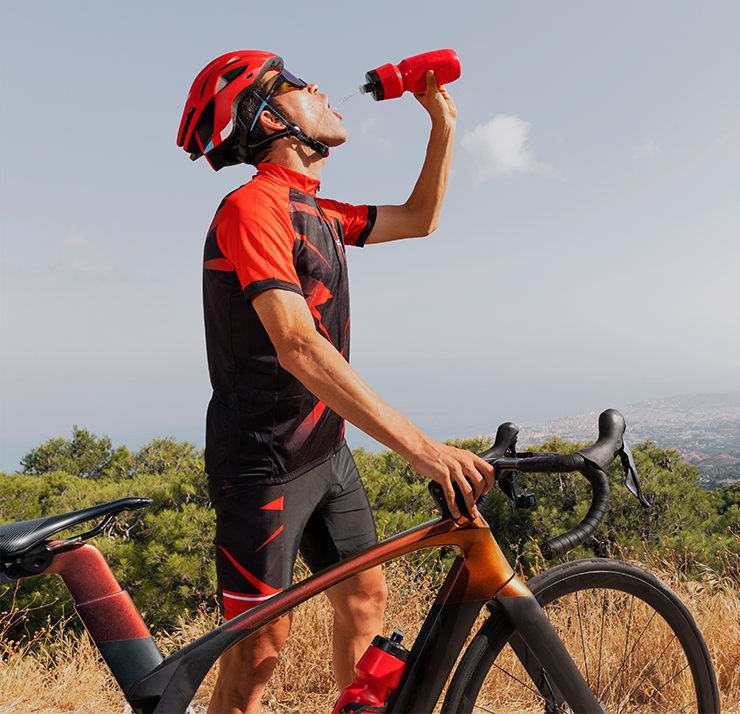
3. Start Slow and Set Goals:
As a beginner, starting slowly and gradually increasing your cycling intensity is important.Start with shorter rides and steadily increase the duration and distance. Set reasonable goals that challenge you but don’t overexert yourself. Track your progress using a cycling app or a simple diary to stay motivated.
4. Proper Riding Technique:
Maintaining proper cycling technique is vital for efficiency and injury prevention. Focus on your cycling posture by keeping your back straight, shoulders relaxed, and elbows slightly bent. Maintain a smooth pedal stroke using a gear that allows a comfortable cadence. Practice using your gears effectively to handle various terrains.

5. Building Endurance:
To build endurance, follow the cycling tips given below:
Interval training involves periods of higher intensity followed by recovery periods. This method helps improve your cardiovascular fitness and increases your overall endurance.
6. Nutrition and Hydration:
Proper nutrition and hydration are vital for fueling your cycling performance and supporting your endurance goals. Consume a balanced diet with carbohydrates, lean proteins, and healthy fats. Carbohydrates provide the primary energy source for cycling, so focus on incorporating whole grains, fruits, and vegetables into your meals. Lean proteins, like chicken, fish, or plant-based alternatives, help repair and build muscle tissue. Healthy fats in foods like nuts, avocados, and olive oil provide sustained energy and support overall health.
7. Rest and Recovery:
Rest and recovery are equally important as training. Allow your body time to recover between rides to avoid overtraining and injuries. Incorporate rest days into your schedule and prioritize sleep to support your overall well-being and cycling performance. Listen to your body’s signals and adjust your training intensity accordingly. Remember, rest is not a sign of weakness but a crucial part of the training process.
Cycling for beginners is an exciting journey with physical and mental benefits. Numerous resources are available to support your cycling endeavors, including online platforms like HDOR. Tour De 100 is HDOR’s most recent cycling event. If you have any questions, TDH
FAQs
should clear it for you. Patience and consistency are key, so enjoy the process and let cycling become a lifelong passion.

